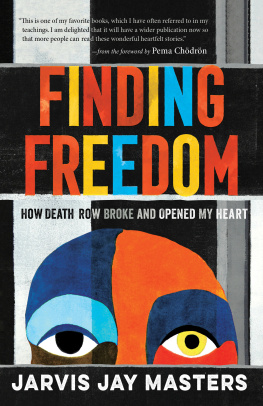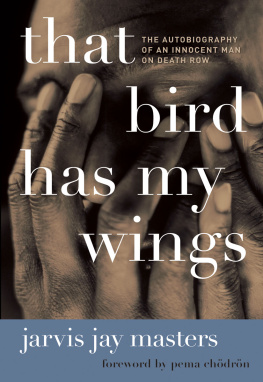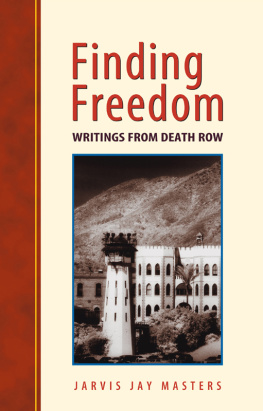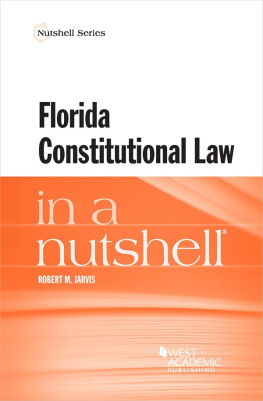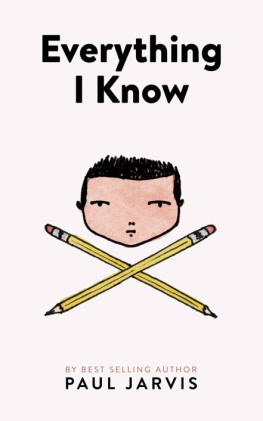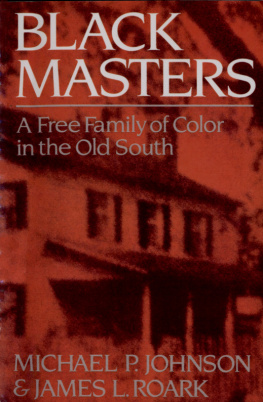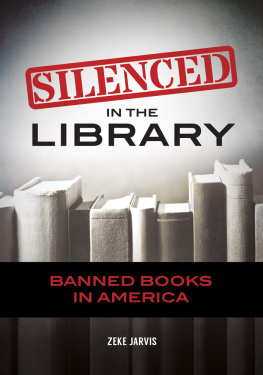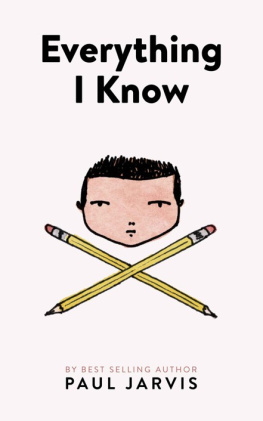Jarvis Jay Masters - Finding Freedom: How Death Row Broke and Opened My Heart
Here you can read online Jarvis Jay Masters - Finding Freedom: How Death Row Broke and Opened My Heart full text of the book (entire story) in english for free. Download pdf and epub, get meaning, cover and reviews about this ebook. year: 2020, publisher: Shambhala, genre: Detective and thriller. Description of the work, (preface) as well as reviews are available. Best literature library LitArk.com created for fans of good reading and offers a wide selection of genres:
Romance novel
Science fiction
Adventure
Detective
Science
History
Home and family
Prose
Art
Politics
Computer
Non-fiction
Religion
Business
Children
Humor
Choose a favorite category and find really read worthwhile books. Enjoy immersion in the world of imagination, feel the emotions of the characters or learn something new for yourself, make an fascinating discovery.
- Book:Finding Freedom: How Death Row Broke and Opened My Heart
- Author:
- Publisher:Shambhala
- Genre:
- Year:2020
- Rating:4 / 5
- Favourites:Add to favourites
- Your mark:
- 80
- 1
- 2
- 3
- 4
- 5
Finding Freedom: How Death Row Broke and Opened My Heart: summary, description and annotation
We offer to read an annotation, description, summary or preface (depends on what the author of the book "Finding Freedom: How Death Row Broke and Opened My Heart" wrote himself). If you haven't found the necessary information about the book — write in the comments, we will try to find it.
Finding Freedom: How Death Row Broke and Opened My Heart — read online for free the complete book (whole text) full work
Below is the text of the book, divided by pages. System saving the place of the last page read, allows you to conveniently read the book "Finding Freedom: How Death Row Broke and Opened My Heart" online for free, without having to search again every time where you left off. Put a bookmark, and you can go to the page where you finished reading at any time.
Font size:
Interval:
Bookmark:
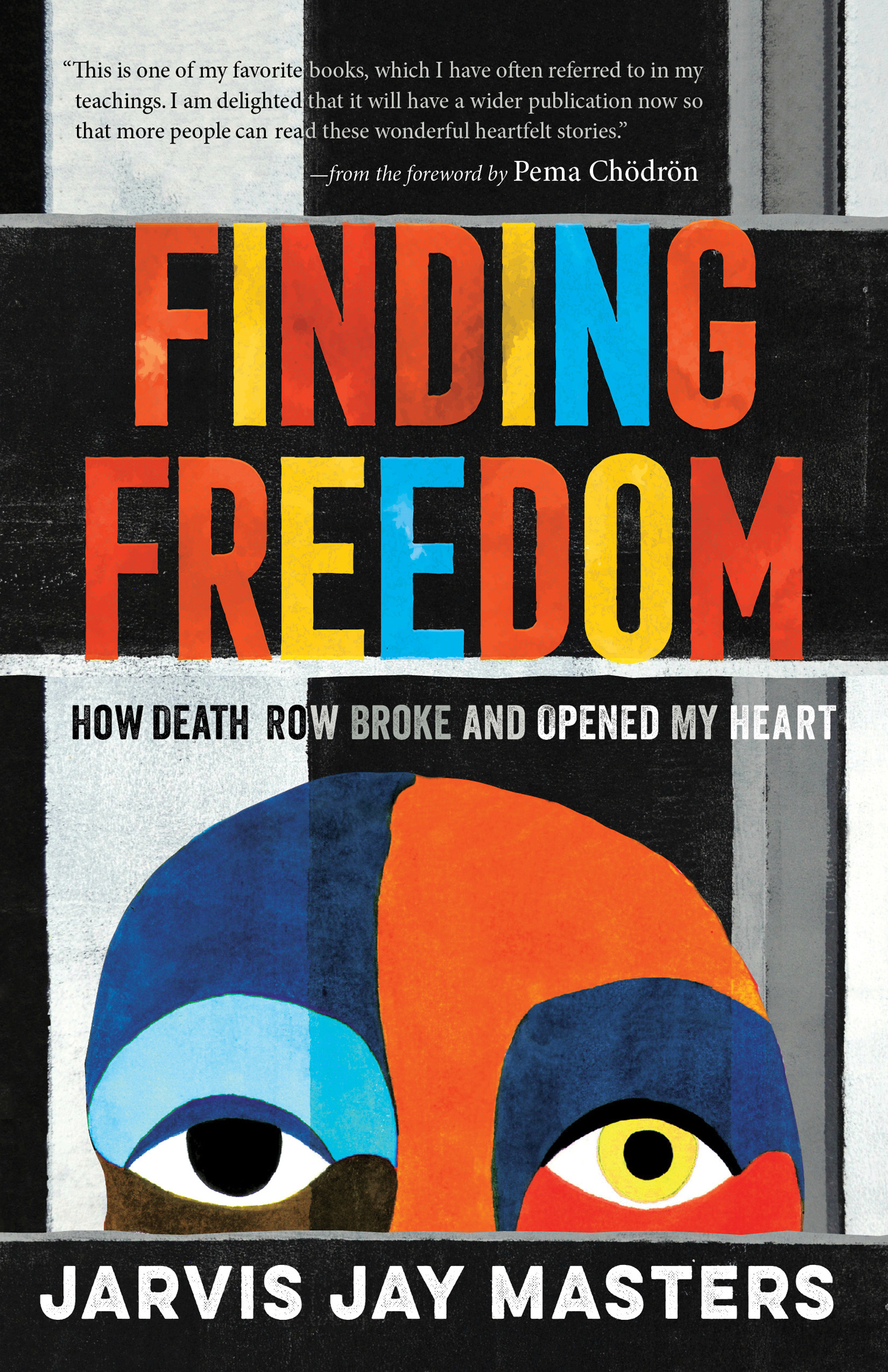
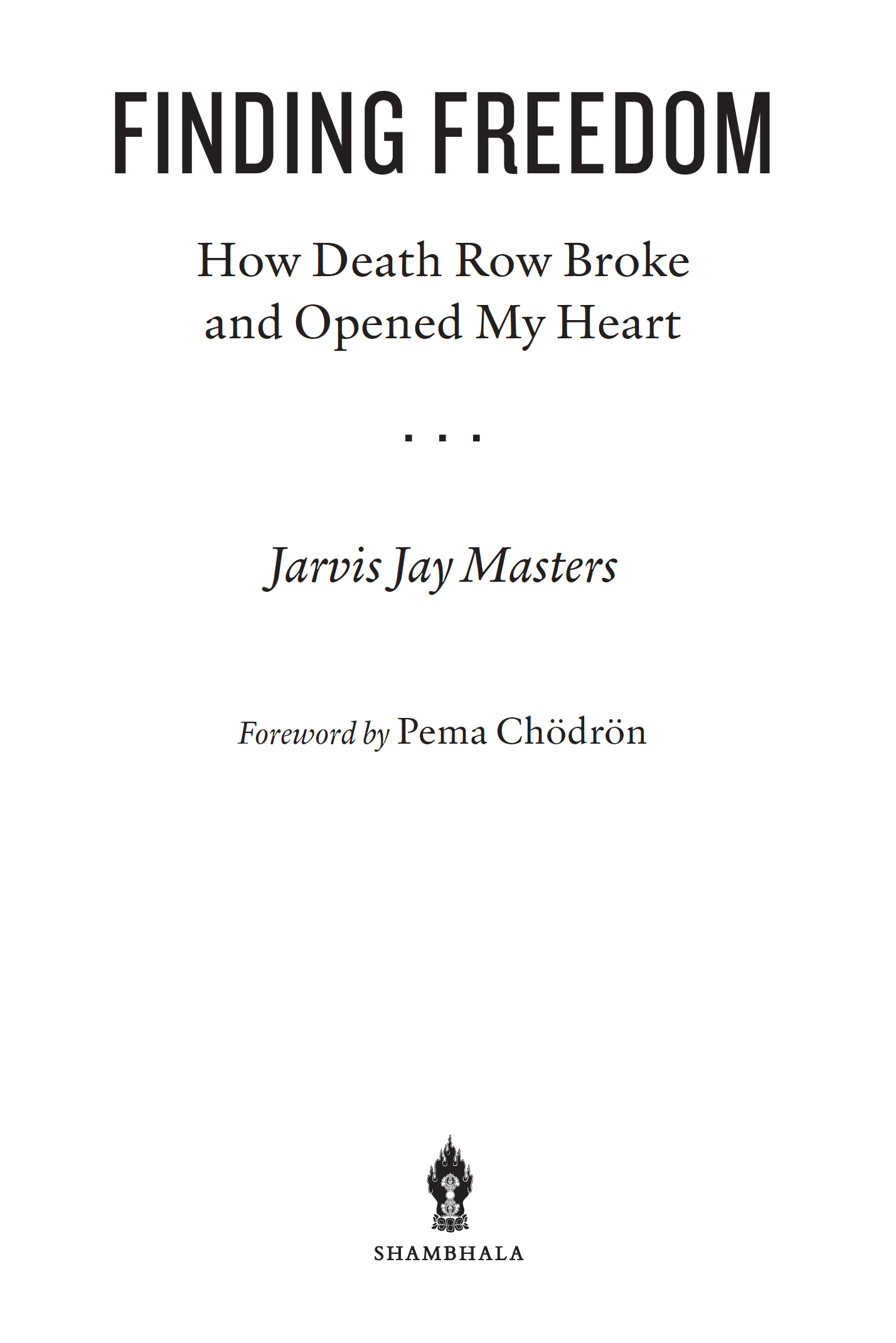
S HAMBHALA P UBLICATIONS , I NC .
4720 Walnut Street
Boulder, Colorado 80301
www.shambhala.com
1997, 2020 by Jarvis Jay Masters
This edition published 2020, with two
additional chapters (On the Question of Time
and Keeping Real) and a new afterword by the author
Foreword 2020 by Pema Chdrn
Cover art: Moopsi / T30 Gallery / Shutterstock
Cover design: Daniel Urban-Brown
Interior design: Lora Zorian
Portions of this book have previously appeared in a different form in the following anthologies and publications: Brotherman: The Odyssey of Black Men in AmericaAn Anthology, edited by Herb Boyd and Robert L. Allen; Where the Heart Is: A Celebration of Home, edited by Julienne Bennett and Mimi Luebbermann; The Awakened Warrior: Living with Courage, Compassion, and Discipline, edited by Rick Fields; Turning Wheel: Journal of the Buddhist Peace Fellowship; Utne Reader; Wingspan: Journal of the Male Spirit; Mens Studies Review: A Publication of the Mens Studies Association; Recovering: The Adventure of Life Beyond Addiction; North Coast Xpress; ReSource: Changes Magazine; Endeavor; Body Memories: Radical Perspectives of Childhood Sexual Abuse; Inquiring Mind; Prison Writing. Mourning Exercise has been reprinted here courtesy of the San Francisco Chronicle, where it appeared on April 14, 1996.
L IBRARY OF C ONGRESS C ATALOGING - IN -P UBLICATION D ATA
Names: Masters, Jarvis Jay, 1962 author. | Chdrn, Pema, writer of foreword.
Title: Finding freedom: how death row broke and opened my heart /
Jarvis Jay Masters; foreword by Pema Chdrn.
Description: Boulder, Colorado: Shambhala, 2020.
Identifiers: LCCN 2020008932 |
ISBN 9781611809114 (trade paperback)
eISBN9780834843028
Subjects: LCSH: Prisoners writings, AmericanCalifornia
San Quentin. | Death row inmatesLiterary collections. |
PrisonersLiterary collections. | PrisonsLiterary collections.
Classification: LCC PS3563.A826 F56 2020 |
DDC 810.8/0920692dc23
LC record available at https://lccn.loc.gov/2020008932
a_prh_5.5.0_c0_r0
To my mother Cynthia, my sister Charlene, and my brother Tommy, who have all passed away during my years on San Quentins death rowand to all sentient beings. May they find freedom.
My dear friend, Jarvis Jay Masters, has been one of my greatest teachers.
This courageous man had a very painful early life. At the age of five, he entered the foster-care system, having first experienced hunger, neglect, and violence. He witnessed suffering and trauma at such an impressionable age, and, like too many who dont get the care and supportive environments they need in their young adulthood, he committed armed robbery and in his late teens ended up in San Quentin Prison.
While still serving his sentence in San Quentin, Jarvis was accused of conspiring to murder a prison guard. To this day, he maintains his innocence of that crime, and Ive joined in the Free Jarvis campaign because I believe him. In the many years Ive known Jarvis and visited him at San Quentin prison, I can see that hes undergone a profound personal transformationone that has been a result of his own willingness to examine his heart and mind. On death rowwhere there is so much despair, anger, and hopelessnessJarvis has emerged as a gentle man, one who has broken through the pain to find the tender humanity in his environment. In the Buddhist teachings, we call this compassion.
When you practice developing compassion as Jarvis has, you begin to see the world and your place in it from a much wider viewpoint. You learn to touch in and experience the truth that we are all fragile, vulnerable, and longing to be loved. Under the guidance of his first Buddhist teacher, Chagdud Tulku Rinpoche, Jarvis took the bodhisattva vow, which essentially means devoting your life to compassion. In taking the vow, Jarvis committed to not hurt or harm any beingsand to do what he could to end suffering wherever he could. In his writings, his meditation practice, and his very presence, Jarvis sets that example for others every day. He gets letters all the time, especially from young people who are struggling as he did, who have heard his story and therefore turned their lives around.
I am continually inspired by Jarvis because of his steadfastness and resilience. I know its not easy for him to sit with intense visible suffering on a daily basis knowing the situation might never change. And yet, Jarvis has found within himself the ability to be present to his experience, to accept, to open, to receive the lessons of his situation, and to keep his sense of humor. I often think to myself, if Jarvis can break through and find the light in this darkest of places, theres hope for all of us.
This is one of my favorite books, which I have often referred to in my teachings. I am delighted that it will have a wider publication now so that more people can read these wonderful heartfelt stories.
This book contains true stories of my experiences in San Quentin. Many of the names were changed to protect those still in prison, but the characters are all people Ive known. That I write of their human side, not just their violent, hardened, humorless side, was a challenge for them. But they all welcomed it, and Ive appreciated their willingness to embrace and support my writing.
The italicized portions of the book were compiled from my letters to friends over my years in San Quentin, as well as from notes they sometimes took during visits. I want to thank them for their permission to use this material. Ive kept parts of letters written to friends to help me discover, understand, sit with so many changes going on in me. I hope they will help the reader understand the transitions I have undergone.
My correspondents have been my companions, quiet listeners through whom I could hear myself speak, see the better part of myself reflected, and learn more about myself and the world around me. Their correspondence also helped me through troubled times. I want to thank them all, but especially Jim Cronin, Sarah Jane Freymann, Donna Gans, Pam Gerwe, Jane Hamilton, Kelly Hayden, Lisa Leghorn, Sarah Paris, Karen Poverny, Will Shonbrun, Diane Solomon, and Lynn Weinberger.
This book was born out of a process of self-discovery that I shared with Melody Ermachild Chavis, without whose belief in me, support, and encouragement for my case, my life, and my writing I wouldnt be who I am today. She guided me through the many steps from extreme anger to the clarity of my Buddhist practice. She created a bridge for me to the outside world, bringing people into my life and giving passage to my voice.
There are many I want to thank for their true and stable friendship and for their humor. They have loved me through my anger and have always held me as a part of their family, especially my loving sister Carlette, Betsy Doubobsky, Melody Ermachild Chavis, Donna Gans, Kelly Hayden, Elershey Johnson, and Conny Lindley. I am especially indebted to Lisa Leghorn, who worked with me diligently in creating this book. She helped me see its benefit and encouraged me, not only by her belief in me, but by her pushy, stubborn, loving, and determined insistence, telling me to write, write, write. She is a person whose love has extended the radiant image of Tara to my heart. In my life, they are equal.
Font size:
Interval:
Bookmark:
Similar books «Finding Freedom: How Death Row Broke and Opened My Heart»
Look at similar books to Finding Freedom: How Death Row Broke and Opened My Heart. We have selected literature similar in name and meaning in the hope of providing readers with more options to find new, interesting, not yet read works.
Discussion, reviews of the book Finding Freedom: How Death Row Broke and Opened My Heart and just readers' own opinions. Leave your comments, write what you think about the work, its meaning or the main characters. Specify what exactly you liked and what you didn't like, and why you think so.

